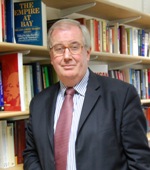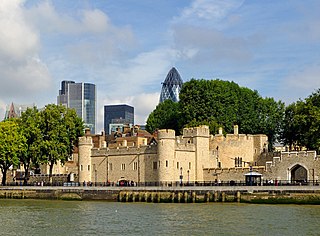
International relations (IR) are the interactions among sovereign states. The scientific study of those interactions is also referred to as international studies, international politics, or international affairs. In a broader sense, the study of IR, in addition to multilateral relations, concerns all activities among states—such as war, diplomacy, trade, and foreign policy—as well as relations with and among other international actors, such as intergovernmental organizations (IGOs), international nongovernmental organizations (INGOs), international legal bodies, and multinational corporations (MNCs). There are several schools of thought within IR, of which the most prominent are realism, liberalism, constructivism, and rationalism.
International relations theory is the study of international relations (IR) from a theoretical perspective. It seeks to explain behaviors and outcomes in international politics. The four most prominent schools of thought are realism, liberalism, constructivism, and rational choice. Whereas realism and liberalism make broad and specific predictions about international relations, constructivism and rational choice are methodological approaches that focus on certain types of social explanation for phenomena.
Social theories are analytical frameworks, or paradigms, that are used to study and interpret social phenomena. A tool used by social scientists, social theories relate to historical debates over the validity and reliability of different methodologies, the primacy of either structure or agency, as well as the relationship between contingency and necessity. Social theory in an informal nature, or authorship based outside of academic social and political science, may be referred to as "social criticism" or "social commentary", or "cultural criticism" and may be associated both with formal cultural and literary scholarship, as well as other non-academic or journalistic forms of writing.

Sir Steven Murray Smith, FAcSS, FRSA, FLSW is an English international relations theorist and long serving university leader. He is the former Vice Chancellor of the University of Exeter and Professor of International Studies.
In international relations, the security dilemma is when the increase in one state's security leads other states to fear for their own security. Consequently, security-increasing measures can lead to tensions, escalation or conflict with one or more other parties, producing an outcome which no party truly desires; a political instance of the prisoner's dilemma.

International security is a term which refers to the measures taken by states and international organizations, such as the United Nations, European Union, and others, to ensure mutual survival and safety. These measures include military action and diplomatic agreements such as treaties and conventions. International and national security are invariably linked. International security is national security or state security in the global arena.

Realism, a school of thought in international relations theory, is a theoretical framework that views world politics as an enduring competition among self-interested states vying for power and positioning within an anarchic global system devoid of a centralized authority. It centers on states as rational primary actors navigating a system shaped by power politics, national interest, and a pursuit of security and self-preservation.
Critical international relations theory is a diverse set of schools of thought in international relations (IR) that have criticized the theoretical, meta-theoretical and/or political status quo, both in IR theory and in international politics more broadly – from positivist as well as postpositivist positions. Positivist critiques include Marxist and neo-Marxist approaches and certain ("conventional") strands of social constructivism. Postpositivist critiques include poststructuralist, postcolonial, "critical" constructivist, critical theory, neo-Gramscian, most feminist, and some English School approaches, as well as non-Weberian historical sociology, "international political sociology", "critical geopolitics", and the so-called "new materialism". All of these latter approaches differ from both realism and liberalism in their epistemological and ontological premises.
Functionalism is a theory of international relations that arose during the interwar period principally from the strong concern about the obsolescence of the state as a form of social organization. Rather than the self-interest of nation states that realists see as a motivating factor, functionalists focus on common interests and needs shared by states in a process of global integration triggered by the erosion of state sovereignty and the increasing weight of knowledge and hence of scientists and experts in the process of policy-making. Its roots can be traced back to the liberal and idealist traditions that started with Immanuel Kant and goes as far as Woodrow Wilson's "Fourteen Points" speech.

The Globalization of World Politics: An Introduction to International Relations is an introduction to international relations (IR) and offers comprehensive coverage of key theories and global issues.Edited by John Baylis, Patricia Owens, and Steve Smith. It has eight editions, first published in 1997, in this book leading scholars in the field introduce readers to the history, theory, structures, and key issues in IR, providing students with an ideal introduction and a constant guide throughout their studies.
In international relations (IR), constructivism is a social theory that asserts that significant aspects of international relations are shaped by ideational factors. The most important ideational factors are those that are collectively held; these collectively held beliefs construct the interests and identities of actors.

Michael E. Cox is a British academic and international relations scholar. He is currently Emeritus Professor of International Relations at the London School of Economics (LSE) and Director of LSE IDEAS. He also teaches for the TRIUM Global Executive MBA Program, an alliance of NYU Stern and the London School of Economics and HEC School of Management.

Historical sociology is an interdisciplinary field of research that combines sociological and historical methods to understand the past, how societies have developed over time, and the impact this has on the present. It emphasises a mutual line of inquiry of the past and present to understand how discrete historical events fit into wider societal progress and ongoing dilemmas through complementary comparative analysis.
Neoclassical realism is a theory of international relations and an approach to foreign policy analysis. Initially coined by Gideon Rose in a 1998 World Politics review article, it is a combination of classical realist and neorealist – particularly defensive realist – theories.
International ethics is an area of international relations theory which in one way or another concerns the extent and scope of ethical obligations between states in an era of globalization. Schools of thought include cosmopolitanism and anti-cosmopolitanism. Realism, Liberalism, and Marxism are ethical traditions that conceptually address moral issues in international relations.
Feminist constructivism is an international relations theory which builds upon the theory of constructivism. Feminist constructivism focuses upon the study of how ideas about gender influence global politics. It is the communication between two postcolonial theories; feminism and constructivism, and how they both share similar key ideas in creating gender equality globally.
Critical security studies (CSS) is an academic discipline within security studies which draws on critical theory to revise and, at times, reject the narrow focus of mainstream approaches to security. Similarly to the case of critical international relations theory, critical security studies encompasses a wide range of theories including but not limited to: feminist, neo-Gramscian, Marxist, post-structuralist, postcolonial, and queer theory. Additionally, critical security studies, draws from a number of related disciplines such as sociology, anthropology, and criminology to find alternative routes to approach questions of security.
Green theory is a theory of International Relations (IR). In contrast to mainstream theories of IR, it posits environmental issues as central to the study of international relations. According to green theory, mainstream theories like neorealism and neoliberalism fail to understand environmental problems through their rationalist and state-centric frameworks of analysis. Green theory focuses on the study of global justice, international development, modernization, and security. Green perspectives in IR emerged in the 1970s as a response to the increase of transnational issues related to the environment. By the end of the 20th century, green theory had established itself within the discipline. Green theory aligns itself with postpositivism that emerged from the so-called third debate of IR. The theory can be divided into an International political economy (IPE) oriented wing and a cosmopolitan wing. Initially, the IPE wing, mainly interested in environmental regimes, was stronger, but subsequently many cosmopolitan theorists, like David Held, Andrew Linklater, Henry Shue, and Thomas Pogge, have made contributions related to environmental issues.
Richard K. Ashley is a postmodernist scholar of International relations. He is an associate professor at the Arizona State University's School of Politics and Global Studies.
Patricia Owens is a London-Irish academic, author and professor. She is a Tutorial Fellow at Somerville College, Oxford and a professor of International Relations at University of Oxford. She is best known for her work on the history and theory of counterinsurgency warfare, women and the history of international thought, the history of social and political thought, and for her earlier work on war and international relations in the thought of the German-American political theorist Hannah Arendt.






